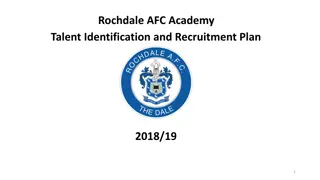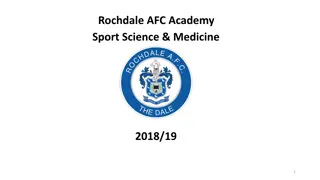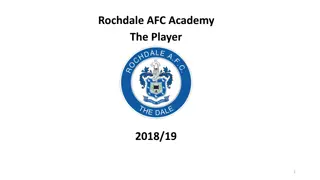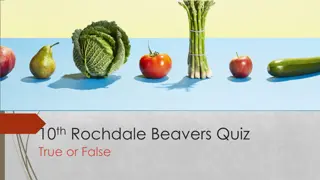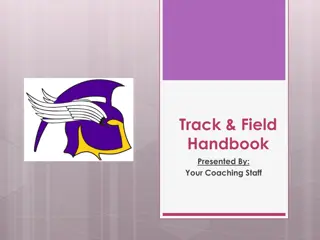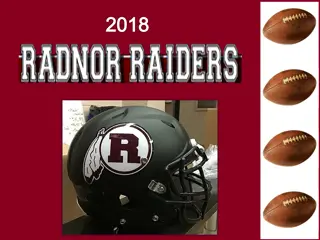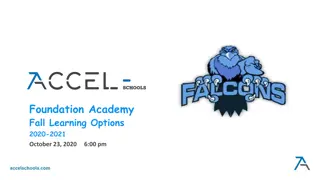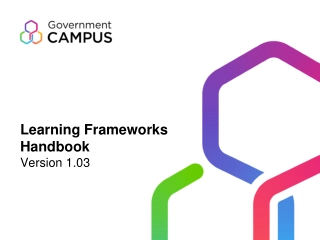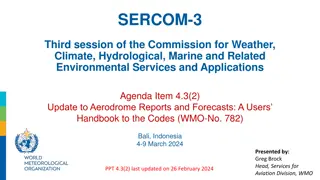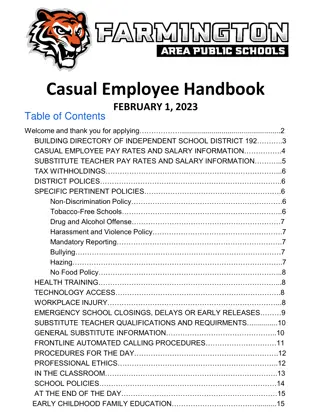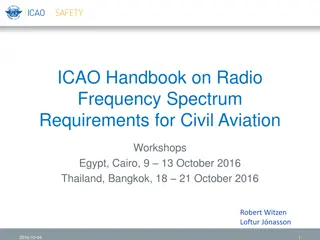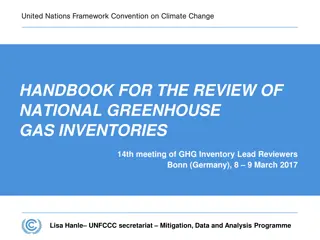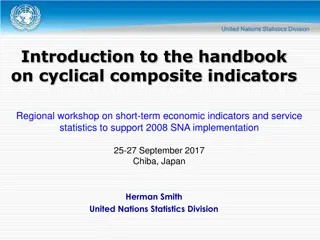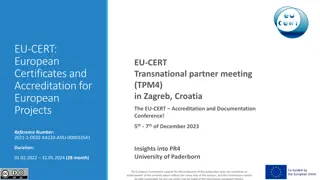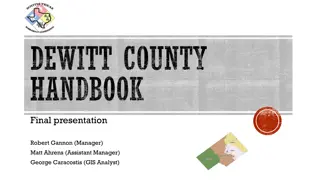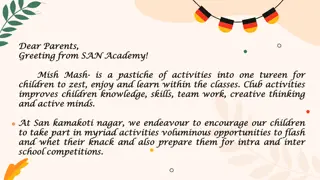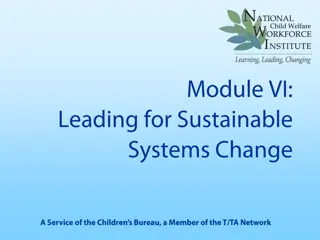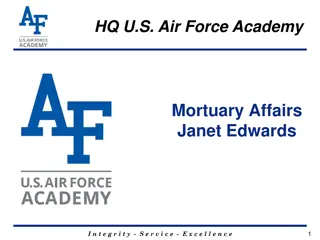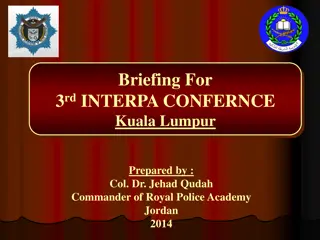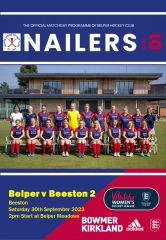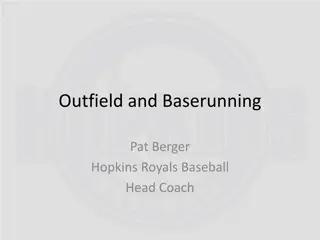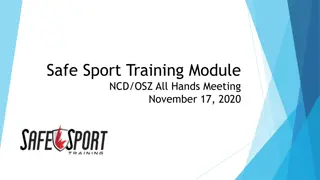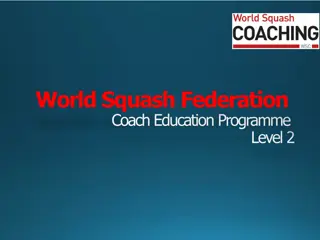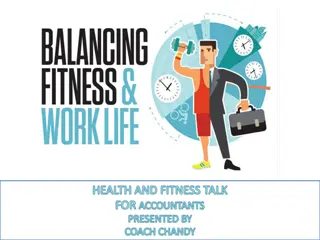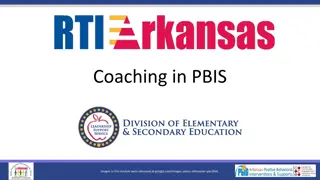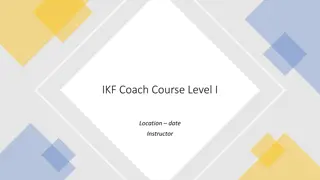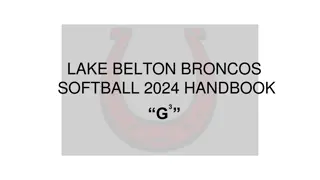Rochdale AFC Academy Coach Handbook 2018-19
Rochdale AFC Academy Coach Handbook 2018-19 provides insights into the coaching staff structure, team philosophy, and the elite winning environment cultivated by the club. The handbook emphasizes a possession-based, fast attacking style of football and outlines key principles for attacking, defending, and transition play. It aims to develop players who are competent in multiple aspects of the modern game, focusing on controlling, dominating, and regaining possession effectively.
Download Presentation

Please find below an Image/Link to download the presentation.
The content on the website is provided AS IS for your information and personal use only. It may not be sold, licensed, or shared on other websites without obtaining consent from the author. Download presentation by click this link. If you encounter any issues during the download, it is possible that the publisher has removed the file from their server.
E N D
Presentation Transcript
Rochdale AFC Academy Coach Handbook 2018-19 2017/18 1
BOARD (BG) + CEO (BG) 1st Team Manager (KH) Liaison Coach (CB) Academy Manager (TE) Academy Operations (CC) Academy Secretary (SA) PDP Coach (CB) Head of Coaching RA Coaching Staffing Model PDP Coach (TE) YDP Lead Coach (LR) FP Lead Coach (MR) Academy GK Coach (RB) Coaches x 8 D Manning S McElhinney D Armstrong A Bilal M Read J Entwistle S Bowles VACANCY Coaches x 8 C Brown K Gibbins T Ellis L Riley C Bell C Chappell D Lloyd M Flynn Pre Academy Elite Development Coaches x 4 Full Time D Manning C Chappell D Lloyd M Flynn U7 & 8 Mark Read David Manning Danny Lloyd
RAFC Chairman and fellow Board Members support the 1st Team Manager, Players and Staff alike in creating and implementing an Elite Winning Environment. RAFC will represent themselves and the local community in a Professional manner, competing at the highest attainable levels playing entertaining winning football. Rochdale AFC The philosophy of Rochdale AFC 1st team is to play: Possession based, fast attacking football In order to achieve this, we will endeavour to develop and produce players who are highly competent in Attacking, Defending and the Transitional aspects of the modern game. We will encourage all teams to Control & Dominate Attacking & Defending situations, whilst always looking to Regain & Retain . We will utilise the Principles of Attacking & Defending Attacking The 1st team at Rochdale AFC will endeavour to play fast attacking football using the traits of the football club, body shape, soft touches and fast passing. Constant Movement is a fundamental trait of the Attacking play and practices, formations and individual roles are designed to encourage players to: Run to Receive Run to Deceive Run To Retrieve The 1st team will play out from the back penetrating through the thirds. On entering the middle third of the pitch we will look to create overloads, utilise rotation and play through central areas, this will also provide a base for balance and security. We will look to create space throughout our play with multi-movements and support; players will be encouraged to drive and slide, drive and shoot, the players have the licence to express themselves and come alive in the final third with end product. 4
Defending The 1st team will be encouraged to deny the opposition space and time pressing the ball in numbers when possession is lost. This emphasises the constant movement philosophy, especially: Run To Retrieve With the attacking philosophy of overloading central areas, we will look to regain the ball as quickly as possible. In the attacking and mid thirds areas of the pitch we will encourage the players to show the opposition inside, in the defending third show away from goal. If the opposition play though the press the next phase of our defending would be to recover, deny, delay, control and restrain the opposition s penetration with the emphasis on regaining the ball. Transition The 1st team will be encouraged to play with a high intensity in the transitional period by looking to regain possession as quickly as possible in order to counter attack with an end product. Constant Movement is a fundamental trait of the Transitional play and practices, formations and individual roles are designed to encourage players to: Run to Receive Run to Deceive Run To Retrieve The preferred formations we play are 3-5-2 & 4-3-3 which allows us to attack in numbers knowing we have the safety that the defensive midfielder will protect the centre of the pitch. However we may have to revert to a 4-2-3-1, 4-5-1 or 4-4-2/Diamond depending on personnel available or the state of the game we are playing. This philosophy provides the opportunity for players to develop their Technical attributes, to develop a Tactical understanding of the game which in turn requires Psychological skills, and develops a Physical aspect to prepare players for the modern game. The philosophy is aspirational and is not prescriptive, as we will encourage players to make decisions based on the situations and areas of the pitch they find themselves in. 5
RAFC Player DNA and RAFC Playing Style RAFC Club s philosophy is to play football endorsing our Club s Values and Visions. Clear Elite Player Profiles in specific positions are defined in the Performance Plan representing RAFC Player DNA . Tactical influences along with beliefs and principles are encouraged to achieve a common goal, shaping a style which can be clearly defined as RAFC Playing style - Fast attacking creative free flowing football, playing out from the back, through the thirds, overloading areas and breaking lines with an end product . RAFC Chairman and fellow Board Member s recognise to underpin the successes of the 1st Team both the Academy Structure and Development Pathway need to be supported by the 1st Team Manager. Encouraging and developing Home Grown Talent with RAFC Player DNA traits in RAFC Playing Styles are Key Performance Indicators to the growth and sustainability of RAFC Football Club 6
The RAFC 1st team Playing Philosophy has not made many changes over the last 3 years. The main change from the start of the 2016-17 season was to introduce a set of Non Negotiables: RUN PRESS COMPETE BODY CONTACT REGAIN RETAIN 1st-2nd-3rdPASS These filter down through the Academy into the coaching programmes and coaches handbook. During the 2016-17 season the manager was to focus on Basic Skills: Heading 1st Touch (Surfaces) Passing Finishing New for 2018-19 the Basic Skills developed into Defending specific aspect: Awareness of attackers Mark player not space Clearances These will filter down through the Academy into the coaching programmes and coaches handbook. 7
The philosophy of Rochdale AFC Academy is to play: Possession based, fast attacking football In order to achieve this, we will endeavour to develop and produce players who are highly competent in Attacking, Defending and the Transitional aspects of the modern game. We will encourage all teams to Control & Dominate Attacking & Defending situations We will utilise the Principles of Attacking: Dispersal Penetrate Movement & Support Creativity End Product We will utilise the Principles of Defending: Press or Delay Balance Depth Compact Self-Control & Restraint Concentration 9
The Academy Philosophy links to the 1st team Playing Philosophy, especially in the following areas: Non Negotiables: RUN PRESS COMPETE BODY CONTACT REGAIN RETAIN 1st-2nd-3rdPASS Basic Skills: Ball Mastery (Turns/Dribbles/Heading/1st Touch (Surfaces)) Passing/Receiving/Possession Defending (Awareness of attackers/Mark player not space/Heading/Clearances/Tackling/Interceptions) 10
Attacking We will encourage all teams to play fast attacking football using the traits of the football club, body shape, soft touches and fast passing. Constant Movement is a fundamental trait of the Attacking play and practices, formations and individual roles are designed to encourage players to: Run to Receive Run to Deceive Run To Retrieve All Academy teams will try to play out from the Goalkeeper, who will be the focal pivot of the start of our attacking play, highest pass first, and try to penetrate through the thirds. On entering the middle third of the pitch we will look to create over-loads, utilise rotation and play through central areas. This will also provide a base for balance and security. We will look to create space throughout our play with multi-movements and support; players will be encouraged to drive and slide, drive and shoot, and the players have the licence to express themselves and come alive in the final third where end product is a must. 11
Defending All Academy teams will be encouraged to deny the opposition space and time pressing the ball when possession is lost. This emphasises the constant movement philosophy, especially: Run To Retrieve With the attacking philosophy of overloading central areas, we will look to regain the ball as quickly as possible. In the attacking and mid thirds areas of the pitch we will encourage the players to show the opposition inside, in the defending third show away from goal. If the opposition play though the press the next phase of our defending would be to recover, deny, delay, control and restrain the opposition s penetration with the emphasis on regaining the ball. Transition All academy teams will be encouraged to play with a high intensity in the transitional period by looking to regain possession as quickly as possible in order to counter attack with an end product (Try to: Regain the ball in 4 seconds, get an attempt on goal in 6 seconds). Constant Movement is a fundamental trait of the Transitional play and practices, formations and individual roles are designed to encourage players to: Run to Receive Run to Deceive Run To Retrieve Our Academy Football Philosophy will be broken down into the 3 Phases but will always have a consistent thread to link them together and even up into the 1st Team. 12
Foundation Phase Learning to Love the Game We believe the foundation phase is a fundamental stage in the Player Performance Clock and this is where we can nurture players to prepare them for the bigger and more complex game as they get older. Therefore, we believe academy foundation players need to have the following mix of Technical, Physical, Psychological and Social attributes: Good, quick feet A good bank of skills Good passing & receiving skills Good A-B-C s Be confident and comfortable on the ball Good Decision Makers A desire to learn A desire to be the best Professionalism 13
To help players develop these key traits, we must develop and work to an enriched, flexible curriculum, with resources and sessions to nurture future first team players through their individual and collective journey. The Rochdale AFC Foundation Phase Age Specific Coaching Programmes, and more importantly the Individual Learning Plans, incorporate the 4 Corner Development Model and will always refer back to the reference point of Attacking/Defending/Transition. However, this is the key stage for Windows of Opportunity and therefore the Physical, Psychological and Social Corners can be truly developed. This can be done in the Foundation phase, however, it needs to be broken down to align to the age group characteristics and development of Key Stage 2 children (U8 U11), and Learning Objectives must reflect this. To add to that, we also believe in order to develop players who are confident and comfortable in possession, players should be exposed to all situations and areas of the pitch and not be position specific in the foundation phase. That said, some players will excel in a certain position or unit and should be nurtured to enhance their development. Also, players must be prepared for the bigger game, and this can take place mostly at U11 & U12. (Our Under 12 s are mainly supported through the Foundation Phase but through our Phase Transition Strategy we also plan for their development into the Youth Development Phase). In the Foundation Phase, the coaching programme should provide the framework for coaches to source challenging sessions to enable players to develop and put their learning to the test in 5 v 5, 7 v 7, or 9 v 9 development games. Sessions should be motivating for all, enriching and productive. A high proportion of contact time of each session should be made up of Technique Ball Mastery Passing, Receiving & Possession, with the remaining time used for game understanding and maybe reviewing the previous game. Game formats in the Foundation Phase are usually 5 v 5 and 7 v 7 at Under 9 and 10, and 9 v 9 at Under 11 and 11 v 11 at Under 12. In the 5 v 5 game we would usually play 1-2-1 rotating. This gives players the basic shape and backbone of the team with a Goalkeeper, Centre Half, 2 x Central Midfielders and a Centre Forward. In the 7 v 7 game we are flexible with formations but we tend to play 2-3-1 adding another Centre Half and a Midfielder to build up to the 11 v 11 game with the Right and Left Midfielders acting as wing backs. In the 9 v 9 games we add 2 x Midfielders as Number 8 s or 10 s to make up a 2-3-2-1. 14
Youth Development Phase Learning to Compete We believe the youth development phase is the core stage in the Player Performance Clock and this is where we can further nurture players to prepare them for the competitive element of the game. Therefore, we believe academy youth development players need to further develop their mix of Technical, Tactical, Physical, Psychological and Social attributes. To help players develop these key traits, we must develop and work to an enriched, flexible curriculum and syllabus, with resources and sessions to nurture future first team players through their individual and collective journey. The Rochdale AFC Youth Development Phase Coaching Programme incorporates the 4 Corner Development Model and will always refer back to the reference point of Attacking/Defending/Transition. This can be done in the Youth Development phase, however, it needs to be broken down to align to the age group characteristics and development of Key Stage 3 & 4 children (U13 U16), and Learning Objectives must reflect this. (Our Under 12 s are mainly supported through the Foundation Phase but through our Phase Transition Strategy we also plan for their development into the Youth Development Phase). To add to that, we also believe in order to develop players who are confident and comfortable in possession, players should be exposed to all situations and areas of the pitch and start to refine position specifics in the youth development phase. That said, some players will excel in a certain position or unit and should be nurtured to enhance their development. Also, players must be prepared for the bigger game. In the Youth Development Phase, the syllabus should provide the framework for coaches to source challenging sessions to enable players to develop and put their learning to the test in 9 v 9 and 11 v 11 development games. Sessions should be motivating for all, enriching and productive. 30% of each session should be made up of Technique Ball Mastery Passing, Receiving & Possession, with the other 70% used for themed game understanding and maybe reviewing the previous game. Game formats in the Youth Development Phase are 9 v 9 and 11 v 11. At Under 12 we utilise the same formation as at Under 11, 2-3-2-1. At 11 v 11 we add the 2 Full Backs and our vision is to play 4-3-3 to mirror the first team, but the formation can change depending on the personnel we have available and can also be 3-5-2, 4-5-1 4-4-2, 4-4-2 Diamond and 4-2-3-1. 15
Professional Development Phase Learning to Win We believe the professional development phase is the most crucial stage in the Player Performance Clock and this is where we can enhance the development of players to prepare them for the competitive and results driven element of the professional game. Therefore, we believe academy professional development players need to enhance their mix of Technical, Tactical, Physical, Psychological and Social attributes. To help players develop these key traits, we must develop and work to an enriched, flexible curriculum and syllabus, with resources and sessions to nurture future first team players through their individual and collective journey. The Rochdale AFC Professional Development Phase Coaching Programme incorporates the 4 Corner Development Model and will always refer back to the reference point of Attacking/Defending/Transition. This can be done in the Professional Development phase, however, it needs to be broken down to align to the age group characteristics and development of Key Stage 5 students (U17 & U18), and Learning Objectives must reflect this. To add to that, we also believe in order to develop players who are confident and comfortable in possession, players should be exposed to all situations and areas of the pitch and pin down their position specifics in the professional development phase. That said, some players will excel in a variety of positions and should be nurtured to enhance their development. Also, players must be prepared for the professional game. In the Youth Development Phase, the syllabus should provide the framework for coaches to source challenging sessions to enable players to develop and put their learning to the test in 11 v 11 league games. Sessions should be motivating for all, enriching and productive. 30% of each session should be made up of Technique Ball Mastery Passing & Receiving, with the other 70% used for themed game understanding and maybe reviewing the previous game. In the Professional Development Phase our vision is to play 4-3-3 to mirror the first team, but the formation can change depending on the personnel we have available and can also be 3-5-2, 4-5-1 4-4-2, 4-4-2 Diamond and 4-2-3-1. 16
Themes: 1 V 1 s Small Numbers Units As a Team RAFC Traits Basic Skills Passing & Receiving Possession RAFC Academy values the specific traits of the football club which are Basic skills, Passing & Receiving and Possession. Traits RAFC Fundamentals are specific skills and attributes associated to players and positions to complement with RAFC Traits / Themes. Fundamentals RAFC Themes are designed to be transferable through the 3 Key Areas: Defending Attacking Transition Themes This philosophy provides the opportunity for players to develop their Technical attributes, to develop a Tactical understanding of the game which in turn requires Psychological skills, and develops a Physical aspect to prepare players for the modern game. The philosophy is aspirational and is not prescriptive, as we will encourage players to make decisions based on the situations and areas they find themselves in 17
Developing Creativity & Decision Making 18
Developing Creativity, Problem Solving and Decision Making Training: Practices that include and encourage random, opposed practices Coaching styles - Guided Discovery, Q+A etc Shapes new shapes for players to adapt and understand Allow players to identify needs for change of strategy - I.E. press a trigger if unconditional press not working in game Flexibility - playing in pressure and out of pressure work out where the spaces are, behind or in front? Playing out from the goalkeeper variations - make the right decision, choose the right one Playing players in new positions that expose them to different situations for problem solving/decision making/creativity. Scenarios, 1-0 up or down etc, or club styles "Fix it" Silent" coaching 19
Developing Creativity, Problem Solving and Decision Making (continued) Games: Shapes new shapes for players to adapt and understand Allow players to identify needs for change of strategy - I.E. press a trigger if unconditional press not working in game Flexibility - playing in pressure and out of pressure - work out where the spaces are, behind or in front? Playing out from the goalkeeper variations - make the right decision, choose the right one Playing players in new positions that expose them to different situations for problem solving/decision making/creativity. Team talks - ask for creativity especially in the final third, Guided Discovery/ Q+A in the team talk, asking players to problem solve and come up with solutions. Always creating a platform for players to express themselves and play with freedom within the framework of the training/game. Constantly putting players in situations in game and training where problem solving and decision making is key and trying not to tell them all the answers... 20
Connection between playing & coaching philosophy 21
Coach freedom, self development and player development Coaches are expected to use all the tools in their toolkit to ensure the coaching and playing philosophies are delivered against. Whilst the philosophies are a framework and not prescriptive, the Academy expects coaches to develop players through the 4 cornered age specific coaching programmes, player profiles, position specifics and the coaches handbook and their personal CCF development plan. The coaching philosophy encourages coaches to utilise a mix of age specific knowledge and understanding, the UEFA coaching qualifications they have attained, along with the FA Youth Awards. 22
Systems & Concepts 5v5 to 11v11 Defending Third Middle Third Attacking Third 23
IN POSSESSION A T T A C K I N G OWN THIRD Highest pass first / penetrate / limited risk / limited rotation- through, round, over, GK pivot. MID THIRD Highest pass first / penetrate / more risk / more rotation chances- through, round, over. ATTACKING THIRD Highest pass first / penetrate / more risk / more rotation chances- through, round, over. End product.
OUT OF POSSESSION D E F E N D I N G DEFENSIVE THIRD Body contact, mark / cover and show away from goal. Tackle, intercept, block shots and crosses. Recovery. MID THIRD Press, support the press, body contact, mark / cover. Show which way? Shape and numbers? Tackle, intercept and stop penetration / screen. Recovery. ATTACKING THIRD Press, support the press, body contact, mark / cover. Show one way. Tackle, intercept and stop penetration screen. Recovery.
ABOUT TO / LOST POSSESSION T R A N S I T I O N DEFENSIVE THIRD Recognise danger, limit opportunities, deny space, time, options, shots / crosses. Press / support / cover. Recovery. MID THIRD Recognise danger, limit opportunities, deny space, time, options. Press / support / cover / recover. Show which way? Shape and unit numbers? ATTACKING THIRD Recognise danger, limit opportunities, deny space, time, options. Press / support / cover / recover. Show which way? Shape and unit numbers?
ABOUT TO / IN POSSESSION T R A N S I T I O N DEFENSIVE THIRD Recognise opportunities to penetrate, retain-limit risk, pass choice, movement options for self / others. . Team / unit balance. MID THIRD Recognise opportunities to penetrate, retain- more risk, pass choice, movement options for self / others. Team / unit balance. Opponent balance. ATTACKING THIRD Recognise opportunities to penetrate, more risk, movement options for self / others. Team balance. End product.
9v9 Team Shape - 2-3-2-1 linked to 11v11 LOCK DOWN
Team Shape 4-3-3 / 4-5-1 LOCK DOWN
Team Shape 4-4-2 Diamond LOCK DOWN
Team Shape 4-2-3-1 LOCK DOWN
Team Shape 4-4-2 LOCK DOWN
Team Shape 3-5-2 LOCK DOWN
Positional Understanding 11v11 See attachments 36
Positional Understanding SSG s See attachments 37
Squad & Position Specific Management 7v7 The Academy endeavours to carry around 10-12 players per age group, to ensure balanced game time. Players are encouraged to master a position after trialling 1, 2 or 3 positions to suit their skill set 9v9 The Academy endeavours to carry around 12-15 players per age group, to ensure balanced game time. Players are encouraged to master a position in readiness for 11v11 11v11 The Academy endeavours to carry around 15-18 players per age group, to ensure balanced game time. Players are encouraged to master one position to aspire to be in the gifted and talented bracket 38
Academy Coaching Philosophy 39
Coaching Philosophy Vision 2017-2020 The RAFC Academy vision is to continue to evolve the philosophy in line with the 1st team and Academy needs whilst embedding the clubs values, principles, traits. The focus on more personal development support for the staff is an area which will enhance the delivery of the program, this is through aligning the C.C.F., C.P.D., E.H.O.C. and supporting programmes. The recent success of the non-negotiables is an example of a subtle change to a stable philosophy which can be beneficial to the coaching department and players. Potential holistic development of both players and coaches is to be explored. The use of a video library and it s potential to be used at training for the benefit of both coach and player will be explored / developed. The culture is to promote through the coach pathway and assist individuals to self-learn, self-develop and self- reflect whilst striving to continually improve and take ownership for their development. This individual learning focus is evident in the strategies used for both the player and coach with the view to explore the potential for new research based studies and learning. Therefore, the need to further explore and develop through external parties, research and technology is apparent. 40
Coaching Philosophy Vision 2017-2020 continued OBJECTIVES To continue to retain and develop the coaches with inclusivity. To utilise more multi-disciplinary methods to develop coaching. To identify and explore more support, qualifications and crossover from external sectors for coach development. To identify and explore potential Academic studies towards coach and player development. To collaborate, identify and explore potential football specific movement patterns for defending and attacking. Align and produce video library of skills for specific movements. To collaborate, identify and produce a video library for defending, attacking, transition principles and patterns to be viewed from the different areas of the pitch. Explore the use of these through mobile electronic devices. Try to improve the department through research and innovation. 41
DIFFERENTIATION - COACHING BEHAVIOURS FOR A POSITIVE LEARNING ENVIRONMENT INSTRUCTION - Used pre-post-during practice. Can cut down time and interference within practice due to visuals, demo s and clarity. QUESTIONING - Open / Closed / 2ndry. Open questioning is preferred by coach and player. Limitations of use can be due to lack of planning / self-awareness. This contributes towards independent thinkers and responsibility taking. FEEDBACK - Video, oral, demonstration. Immediately, post event. The type / tone used and timing of feedback is critical along with the intervention type. CORRECTION Strategies, types, timing of correction. Do you need to stop at all. Can it be delivered in break. Individual / unit / group / team. CHALLENGES - individual / team / scenario for practice / work it out = problem solving / setting up / opposition strength & weaknesses. COMMUNICATION Verbal & non-verbal = Expressive of thoughts/ feelings and predominantly used. Specific = more clear, player understands and neurologically stimulating. Preference for player and coach. General = can be obvious but also elusive as lacks detail / clarity for young players. Positive = more motivating, confidence boosting and neurologically stimulating. Negative = Required progressively more although after consideration of choice of communication. DEMONSTRATIONS by coach / player / group / television examples / other group training or playing. Affect the psychology of the player. INTERVENTIONS Allow for self-learning, reflection through using Q & A, secondary questioning, group & individual task learning, guide & discovery. Individual challenges can help the player succeed / learn. Command / show & tell may be required. AGE GROUP CHALLENGES Have your interventions / questions / challenges planned to use, however the order of use may change. The length of time spent in each of these type of behaviours is key- consider visual/ audio/ kinaesthetic learners and how explaining can be minimised allowing other behaviours to become more prominent / efficient. Check and reinforce learning with all.
PRACTICE TYPES USED & BENEFITS FOR A POSITIVE LEARNING ENVIRONMENT CONSTANT Not varied, allows repetition, muscle memory, lower motivation. High chance of success / less chance of failure. VARIABLE Variety under less controlled conditions. More types of movement / action / skill. Medium chance of success and failure. RANDOM Learning occurs best because of variety and higher motivation. Enabling long term memory. More chance of failure/ less chance of success. BASIC SKILLS Repetition (NLP), sport specific task, opposed, body contact, can be taken into games. PASSING / RECEIVING Repetition practice. Manipulate size / shapes / areas of the pitch and simple rules. Position specific or general. Shorter / Medium/ longer passing ranges, disguise/ receiving / releasing skills. Use of body and movements to receive. POSSESSION - Decision making, close to the game, allows to self-learn and develop. Directional / non-directional, Manipulate size / shapes / areas of the pitch and simple rules. Position specific or general. Shorter / Medium/ longer passing game, disguise/ receiving / releasing skills. Use of body and movements to receive. FUNCTIONS / PHASES / CONDITIONED GAMES (e.g. WHOLE-PART-WHOLE) Decision making, closer to the game, allows to strip back to smaller groups and/or allow specific focus. Realistic situations. SMALL SIDED GAMES Decision making, realistic to the game, allows to self-learn and develop. Scenario and strategies for learning. Elite Youth players benefit from more opposed open practices (possession, conditioned and small sided games) than unopposed technical practices. Elite Youth players benefit from a safe, challenging environment with a more progressive use of positive and negative specific feedback. Individual / unit / team Increase from technical club traits through to theme based tactical learning in relation to the game. 11v11. AGE GROUP CHALLENGES AGE GROUP CHALLENGES RAFC session should allow the players to learn with limited interruption. This allows more detail to be coached and more time for positive / negative specific detailed feedback for learning! Balancing types of practice to maximise returns for the required repetition for young players whilst attaining the decision making properties needed. Developing the individual to self-learn through practice- work through, experiment & solve problems. The increasing nature of learning to compete in the team, developing more tactical understanding, dealing with failure whilst displaying emotional control Ownership, responsibility and consequences are important allowing the transition from learning to compete to learning to win. Support networks and challenges pre-during-after maturation.
COACHING STYLES - PRACTICE There are pros and cons for all styles and coaches would have covered these on their UEFA B/A and FA Youth Modules courses and understand when and where to use appropriately. COMMAND / DEMAND Coach tells and shows required solution. Coach takes players there with encouragement and enthusiasm. QUESTION & ANSWER Coach leads with questions to try and gain response from player. OBSERVATION & FEEDBACK Coach and player observe GUIDED DISCOVERY Coach asks a question or issues a challenge TRIAL & ERROR Player and/or coach decide on challenge Elite Youth Players have shown to respond more to Command, Question & Answer & Guided Discovery. Please refer to age specific coaching philosophies for recommended styles per age group/phase. These styles are preferred to enhance player learning during this phase as Good Practice and should be the majority of the styles directed for the individual. COACHING STYLES - GAME ENVIRONMENT In addition to the above recommendations for practice, the Academy includes the following good practice for the games environment. Good practice has been refined to include the following for Elite Players: Allow players to relax, drink, eat, and chat before, during breaks in play and post-game. Non-verbal cues, signals as the player enter / leave pitch or dressing room. Focus on learning objectives from LTPD perspective. Awareness of language, tone and delivery type. Strategies for support during game, code of conduct, club values and ethics. Match-day protocols. Address individual / unit / team together or separately accordingly. Playing experiences / positions / positional / variety
SUMMARY Coaches to portray a Positive Learning Environment in Practice and Games. Coaches to use recommended Coaching Styles in accordance to the individual and group. Maximum benefit for Elite Youth Players has shown to come from more opposed open practices (possession, conditioned and small sided games) than unopposed technical practices. RAFC Academy requires a more progressive nature of practices aligned to enhance tactical knowledge through the Youth Development phase. The game / practice when structured correctly can allow for maximum returns, with interventions / coach behaviours, strategies allowing players to self-learn and focus whilst developing. Challenges are required with progressive focus on ownership, responsibility and consequences. Differentiation is required to suit the individual before / during / after puberty with the progressive use of specific individual information and more use of specific negative feedback. This builds upon the emphasis of the players developing psycho- socially.
Gifted & Talented - RAFC Definition Gifted & Talented at Rochdale AFC Academy is defined as: players who have the potential to develop beyond what is expected for their age The key traits for being classed as Gifted & talented within the RAFC Academy environment are: Non Negotiables Compete Press Run Contact Retain 1st 2nd 3rd Pass Technical & Tactical Ability in and out of possession Psychologically strong Socially intelligent 46 These traits are closely monitored when the Talent ID spotters are assessing potential Academy players
Basic Skill Acquisition Techniques into Games 47
BASIC SKILL ACQUSITION INTO GAME Rochdale AFC have multiple principles and guidance for coaches to assist players on transferring practice into game. The element of decision making in practices is required with limited interruptions, use of individual challenges and varied intervention types being used. The need to practice skills and mastering the ball are good in isolation however the learning takes place within the game. This is the focus for most practices however the need for repetition and technical work may be required at times. The coaching program highlights working individually, small numbers, units and team, which enables players to take more responsibility and accept challenges. This guidance is in the program, coach handbook and below is some of the relevant information: Training: Practice design - Basic Skills into Small sided games (SSG s), random opposed practices, rules, scenarios. Elite Youth players benefit from more opposed open practices (possession, conditioned and small sided games) than unopposed technical practices. Elite Youth players benefit from a safe, challenging environment with a more progressive use of positive and negative specific feedback. Coach behaviour and differentiation - communication both verbal / non-verbal, styles. INTERVENTIONS Allow for self-learning, reflection through using Q & A, secondary questioning, group & individual task learning, guide & discovery. Individual challenges can help the player succeed / learn. Command / show & tell may be required. AGE GROUP CHALLENGES these are documented in all the above areas and consider the age group characteristics. Games: Guidance on the environment set and good practice.
Academy Vocabulary The Academy vocabulary is consistent across the phases and linked to the 1st team. General Learning Objective The desired outcomes from the session/game/player Team Learning Objective The agreed desired outcomes for the team Non Negotiables RUN PRESS COMPETE CONTACT REGAIN RETAIN 1st-2nd-3rd PASS 50


